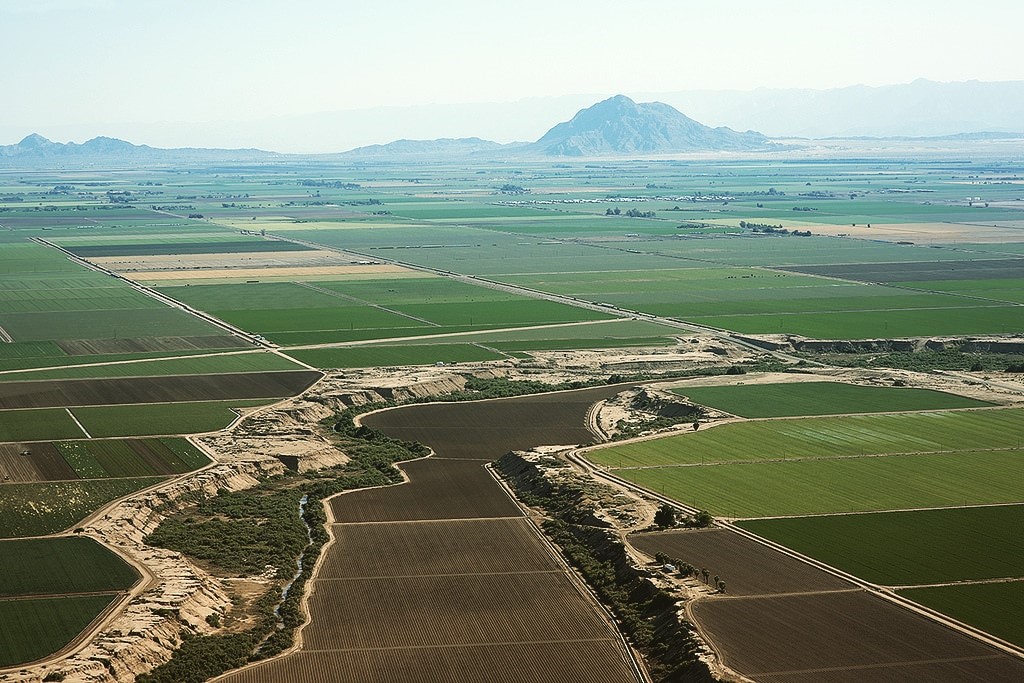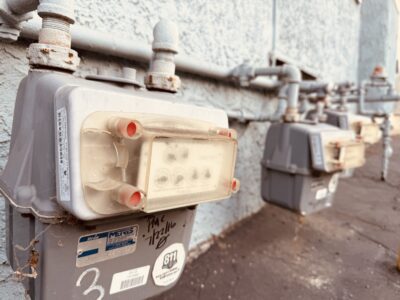Fighting for Clean Air in Imperial County, California
UCLA Emmett faculty team up with environmental justice group to file amicus brief in Clean Air Act case.

Air pollution has devastating health effects in many of California’s inland communities. That’s the case for rural Imperial County, where one in five children suffer from asthma, double the state rate, due to high levels of air pollution from highway traffic, farming and livestock operations, desert dust, and industry in Mexicali, a large city just across the U.S.-Mexico border.
Environmental and health advocacy groups recently sued EPA to require stronger air regulations in the region. Together with my colleague Sean Hecht and others in the Frank G. Wells Environmental Law Clinic at UCLA, I filed an amicus brief in support on behalf of Comité Civico del Valle.
Comité Civico del Valle is an environmental justice and public health organization that advocates for better pollution controls in Imperial County, pioneering a community air monitoring program with over forty stations throughout Imperial Valley. Our brief helps educate the Ninth Circuit on why their fight is so important. A win here could be a big help for Imperial County residents—and possibly other communities with air quality problems along the U.S.-Mexico border.
The Imperial County region has failed for more than a decade to attain federal standards for ozone pollution under the Clean Air Act. Usually, lengthy nonattainment like Imperial County’s would trigger additional responsibilities for California to cut ozone pollution in the area. But an obscure provision allows EPA to waive some of those requirements if the state can show that pollution sources from outside the United States prevent the region from attaining ozone standards.
The California Air Resources Board argued that pollution from Mexicali did just that. EPA agreed, and the Center for Biological Diversity and the Center for Environmental Health sued. Clean air advocates don’t challenge the agency finding that blames Mexicali, in part, for Imperial County’s ozone pollution troubles. They argue instead that the law nonetheless requires EPA and California to do more to clean up Imperial County’s air.
Air Pollution in Imperial County
Ozone protects us from ultraviolet radiation when it’s high above in the atmosphere. But when it forms close to the ground—which happens when we burn fossil fuels or use certain chemicals, especially during sunny, hot weather—it can cause smog, lung disease, and premature death. Recent expert testimony before Congress reports that ozone pollution kills 51,000 people in the United States per year. Even at low-level exposures, it can cause asthma and other chronic diseases.
Ozone pollution is a big concern for Imperial County residents. The communities there are exposed to high levels of air pollution and are extremely vulnerable to its health impacts. The region’s geography can trap emissions from highway traffic, pesticide spraying, and farm equipment like tractors and irrigation pumps, causing dangerous ozone levels to build in the air. High levels of other air pollutants like particulate matter make the situation worse by exposing residents to multi-pollutant impacts.
A more recent concern is the Salton Sea, California’s largest lake, which is slowly dying due to changes in the state’s water allotments. As the Salton Sea shrinks, its lake bed becomes exposed to the wind, creating new sources of particulate matter pollution. This lake bed dust is especially worrisome because it’s laden with over a century’s worth of agricultural sediment that contains toxic pollutants like selenium. California’s experience with the near-total desiccation of Owens Lake warns that what’s happening to the Salton Sea may be devastating for the region.
Emissions from Mexicali also play a big role in Imperial County’s poor air quality, but treating them as purely international would be inaccurate. Many of Mexicali’s factories are owned by large U.S. corporations that assemble final products for export to U.S. markets. U.S.-Mexico trade agreements, including NAFTA, ease the flow of goods into the United States and lead to more truck traffic, while long wait times at U.S. ports of entry worsen emission levels from these trucks. So while the emissions physically occur outside the country, they result in part from policy decisions made at the highest levels of decisionmaking in the United States.
A Public Health Crisis
This air pollution has created and exacerbated a public health crisis in Imperial County, which reports high rates of asthma, heart disease, diabetes, and child obesity. Meanwhile high poverty rates, high unemployment rates, and language barriers—85% of Imperial County’s residents are Latino and many households report limited fluency in English—prevent access to adequate medical care. The cumulative impacts of multiple pollutants and social vulnerability create dangerous health harms for the county’s residents.
The poorly controlled outbreak of COVID-19 has inflamed the situation. COVID-19 is a respiratory disease especially harmful to people exposed to air pollution or experiencing social marginalization. Imperial County has the highest COVID-19 case rate in California, about three-and-a-half times the rest of the state. The county also has limited medical resources to fight the disease. Many of the sickest patients have had to be airlifted to other cities, some as far as San Francisco, at a rate of more than a dozen a day at the virus’s peak.
More than 270 Imperial County residents have died from COVID-19. And the pandemic may worsen Imperial County’s public health troubles in the long run. The disease can cause lasting damage to cardiovascular and respiratory systems in recovering patients, conditions that increase vulnerability to air pollution.
This is why Comité Civico del Valle, the Center for Biological Diversity, and other organizations are fighting for cleaner air in Imperial County. This corner of the state has suffered from environmental inequity for too long, as have other communities along the U.S.-Mexico border. EPA and California can and should do more to mitigate its public health crisis.







Reader Comments